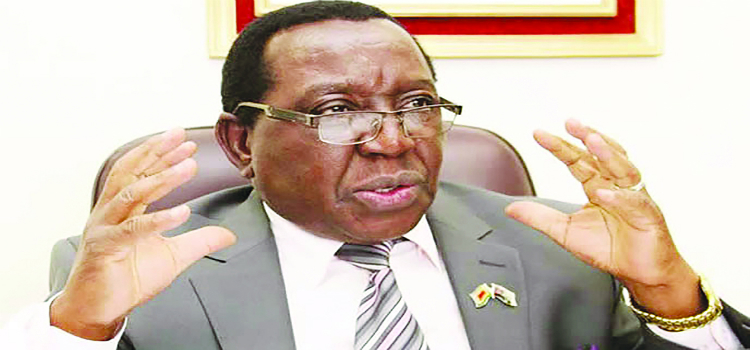MISA Zimbabwe welcomes remarks by Acting Minister of Information, Media and Broadcasting Services, Simon Khaya Moyo, that his ministry is in the process of aligning the Access to Information and Protection of Privacy Act (AIPPA) and the Broadcasting Services Act (BSA) with the Constitution.
Moyo was speaking at the launch of the Media Alliance of Zimbabwe’s elections programme on 2 February 2018. The programme titled: Support to Media on Governance and Electoral Matters in Zimbabwe, is supported by the International Media Support and the European Union.
Action
MISA Zimbabwe, however, notes that this is not the first time that government has conceded that both AIPPA and BSA need to be overhauled. Appearing before the Parliamentary Portfolio Committee on Media, Information and Broadcasting Services in February 2016, Permanent Secretary for Information, Media and Broadcasting Services, George Charamba, acknowledged that the two laws fall far short of meeting new emerging issues.
Earlier this year, Charamba told ZiFM Stereo, that BSA and AIPPA are “awaiting reconstruction” to bring them into line with the Constitution.
However, in November last year, the chairperson of the Inter-Ministerial Taskforce on Law Reforms, Advocate Prince Machaya, disclosed to civil society leaders that the ministry was yet to make submissions to his office on the alignment of the two acts.
Despite these admissions, there has been little movement in the aligning or repealing of these contentious laws. MISA Zimbabwe therefore urges the minister to match his words with action that will free the media environment by scrapping these repressive laws.
This is of particular importance as the country prepares for the 2018 elections expected within the next six months.
Access to information law
AIPPA must be scrapped and replaced by an access to information law that meets regional and international principles as provided in terms of the African Commission on Human and Peoples’ Rights’ Access to Information Model Law which states the following:
Every person’s right to expeditious and inexpensive access to information held by public and private bodies.
- That a right to access information must be subject to clearly defined and limited exemptions.
- That public bodies should publish up to date and accurate information about their structures, functions, processes, decisions, and policies.
- The establishment of an independent and competent Information Commission responsible for the administration of the revised Access to Information Act
Broadcasting law
Apart from focussing on the regulation of the sector, an ideal broadcasting law should capture the principles of the public broadcaster (ZBC) and convergence of the sector with other electronic communications. This can be achieved through:
- A converged regulator for the broadcasting and electronic communications sector.
- Expansive provisions on public service broadcasting including the governance framework and measures to ensure its accountability.
- Introduction of a stipulated and regulated quota of permissible foreign control as a measure of promoting investment into the sector.
- Measures aimed at guarding against monopoly in the sector and in the media as a whole through limitations of cross ownership.
- Broader and more encompassing definition of the word “community” for purposes of licensing of community broadcasters
- Proposal that the Authority [Regulator] sets two dates/ periods each year, where it will receive licence applications for all services for which frequencies are available. This is meant to ensure that the Authority does not hold discretion to decide when it wants to call for broadcasting licence applications as currently happens with the Broadcasting Authority of Zimbabwe.
While BSA and AIPPA are the main laws governing the media sector, there are other laws that limit freedom of the media, freedom of expression and citizens’ right to access to information.
Such laws include certain sections of the Criminal Law (Codification and Reform) Act. Some of the provisions which restrict media freedoms include Section 31 which criminalises publishing or communicating false statements prejudicial to the State and Section 33 which criminalises undermining the authority of the President.
MISA Zimbabwe therefore urges the government to look beyond AIPPA and BSA to include laws such as the Official Secrets Act and Censorship and Entertainment Controls Act, among others, whose provisions infringe on the aforementioned rights.
End









